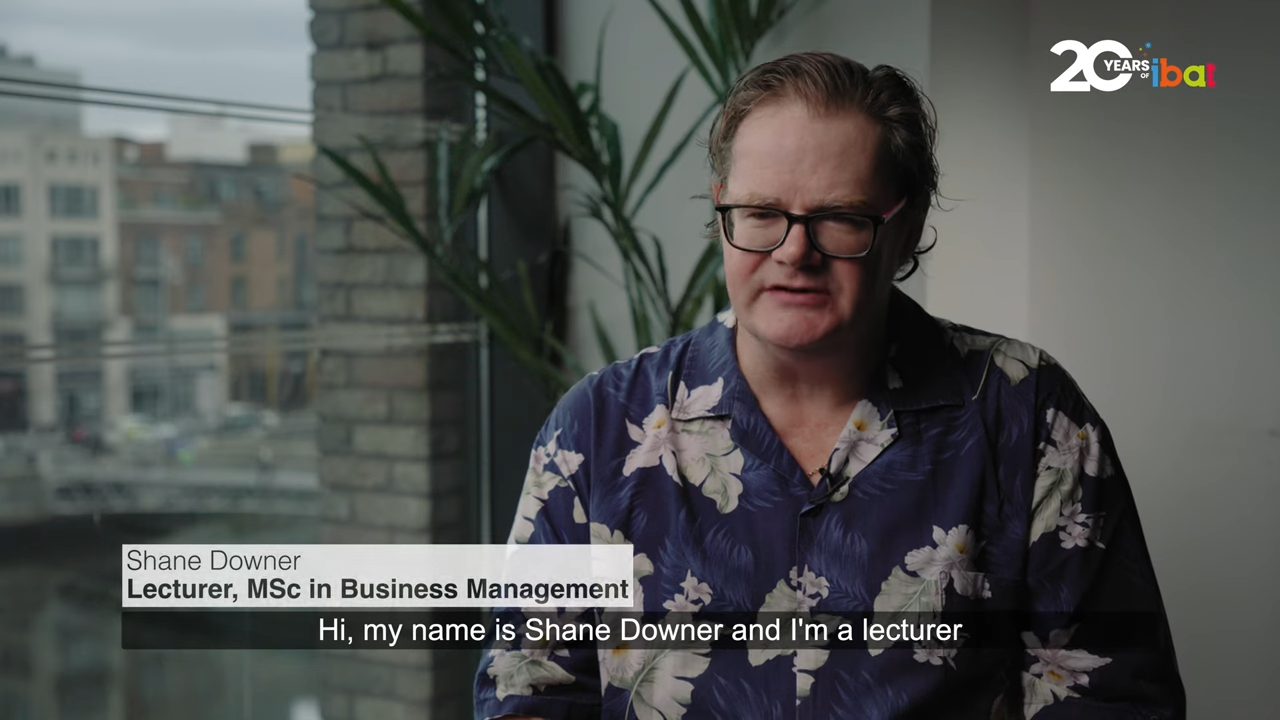- Why Choose the MSc in Business Management Programme?
- Programme Objectives
- Programme Structure
- Career Opportunties
- Entry Requirements
Why Choose the MSc in Business Management Programme?
The MSc in Business Management offers an opportunity for learners to seamlessly integrate the knowledge, skills, and competencies acquired during their undergraduate studies with a fresh skill set in business management. This programme is designed to provide students with a clear understanding of core business functions and disciplines, along with a critical grasp of the principles and application of effective business management.
Tailored for non-business graduates, including those from science, engineering, technology, arts, law, and social science backgrounds, this MSc in Business Management enables participants to steer their career trajectories toward the business realm. For some, it may mark a divergence from their undergraduate field, while for others, it acts as a complementary layer to their existing qualifications. Conversion courses hold high esteem in the eyes of employers. Developed in collaboration with industry experts, the MSc in Business Management programme aligns with current and future demands.
Irrespective of your undergraduate area of study, this programme immerses you in the latest research and practices across pivotal business management domains such as strategy, innovation, marketing, and people and organisations, ultimately preparing you for the professional arena.
In a Strategic Partnership with ATU

Programme Objectives
The programme aims to fuse the knowledge, skills, and competencies from participants’ undergraduate studies with fresh expertise in business management. This integration equips learners with a solid grasp of core business functions and disciplines while cultivating a critical understanding of the bedrock principles and practice of effective business management.
Programme Learning Outcomes
Having successfully completed this programme, graduates will be able to:
- Appraise current strategy and operations theories, having examined relevant and current research and literature.
- Assess current trends in business management and be capable of evaluating the impact of these trends on the business environment.
- Select from complex and advanced management, marketing, accounting and business innovation skills, and develop new skills to a high level, including novel and emerging techniques.
- Act in a wide variety of professional levels and demonstrate originality in solving complex problems in a business context. Manage and question the effectiveness of teams and individuals and take responsibility for defining and achieving both personal and team goals.
- Self-evaluate and take responsibility for career and professional development while enhancing transversal behavioural skills such as reflection, critical thinking, and independent learning.
- Question and reflect on social norms and relationships and act to change them.
- Demonstrate a range of standard and specialised research or equivalent tools and techniques of enquiry
- Appropriate to business, in the context of a work-based learning research project.
In a Strategic Partnership with ATU

Programme Structure
| SEMESTER | MODULES | MANDATORY/ELECTIVE | ECTS |
|---|---|---|---|
| 1 | Management Strategy | Mandatory | 10 |
| Business Innovation & Enterprise | Mandatory | 10 | |
| Accounting Information for Managers | Mandatory | 5 | |
| Research Methods | Mandatory | 5 |
| SEMESTER | MODULES | MANDATORY/ELECTIVE | ECTS |
|---|---|---|---|
| 2 | Supply Chain Operations | Mandatory | 10 |
| People and Organisations | Mandatory | 10 | |
| Marketing Management | Mandatory | 10 | |
| Work Based Learning Research Project | Mandatory | 30 |
Career Opportunties
Upon completion of the MSC in Business Management programme, graduates will have a distinctive blend of skills. Leveraging their undergraduate discipline in conjunction with their newfound business acumen, learners become highly sought after by employers. This hybrid skill set translates to career assurance, diverse experiences, and transferable skills.
Complementing their undergraduate knowledge, completing this MSc in Business Management positions graduates to excel in diverse management roles aligned with their chosen disciplines. Equipped with robust management skills, graduates are primed to tackle the challenges of the contemporary global business arena.
Excel in Today’s Globalised Business Environment
Graduates of the MSc in Business Management are equipped with a distinctive combination of skills. Participants fuse the expertise from their undergraduate discipline (e.g., engineering or computing) with freshly acquired business acumen. This hybrid skillset is highly regarded by employers and offers students career certainty, diverse experiences, and transferable skills.
Further Academic Pursuits
Advancement from this programme aligns with the National Qualifications Framework. Upon successful completion, candidates may qualify for advanced doctorate-level programmes at ATU or other Higher Education Institutions.
In a Strategic Partnership with ATU

Entry Requirements
The Academic and English Language Proficiency entry requirements for the MSc in Business Management programme are as follows:
Academic:
Hold at minimum a 2.2 honours degree (level 8) in a non-business discipline, or an equivalent qualification, such as a professional certification, from a recognised educational institution in Ireland or abroad.
And English Language Proficiency:
With one of the following:
| IELTS (Academic) | 6.0, no component less than 5.5 |
| DuoLingo | Min score 105, min 100 in each section (under review) |
| Pearson PTE Academic: | Min score of 55 |
| TOEFL IBT: | Min score of 80 |
| Cambridge English Qualifications | A minimum score of 180-190 (FCE Grade B) |
Exemptions:
You may be exempt if you’ve completed a degree in Ireland, the UK or USA within the last 2 years or have successfully completed specific courses at IBAT English Language School.
Why Study at IBAT Dublin?
We are Ireland’s leading enterprise-focused third level institution with a special focus on how we guide, support, and mentor our students throughout their college experience and into their working lives.
We know that employers need graduates that can hit the ground running, so we’ve tailored our courses to prepare you to do just that. And if you need an extra hand, our Academic team equipped with years of lecturing and industry experience are ready to support you both in your professional and personal development.
Diverse Programmes
Take your pick of our wide range of courses, each designed with your future in mind.
Expert Tutors
Learn from industry professionals at the very top of their game.
Flexible Learning
Life happens. We get it. Study and achieve your goals on your schedule.
Central Location
Study at one of our two campuses placed in the heart of central Dublin.
Small Class Sizes
Get one-to-one, personalised support from our tutors.

Student Testimonial
Meet Maria, a Student in the MSc in Business Management Programme at IBAT.
Join Maria, a student in the MSc in Business Management programme through IBAT’s strategic partnership with ATU, as she shares how this prestigious partnership appealed to her as an international student.
